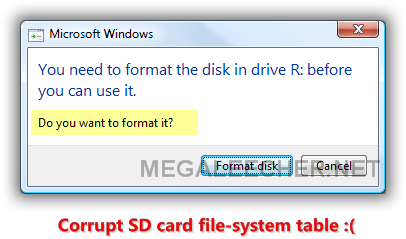Plugging in the SD card into your PC to find out it is not getting detected could be the worst nightmare for anyone having thousands of pictures, music and other important data onto it. I have shared many How-to's and utilities to help users recover data but sadly all of them failed or were unable to recover all data on the SD-card which came to me for recovery. After doing a lot of research on why my computer is asking me to "Format" the SD-card instead of reading it's content, I was pretty sure the culprit was a bad file-system boot sector.

While 99.9% of the data recovery applications, both free and paid relied upon the same method to "Scan" and find data from the disk bypassing the file-system "registry" of the files, I was looking for something which will allow me to play with the damaged boot sector of the file-system to recover the underlying "file record registry". Luckily, what I found was not only open-source and free but supported advanced features which nothing else offered, the utility supported NTFS, FAT12, FAT16, FAT32, exFAT, ext2, ext3, ext4, btrfs, BeFS, CramFS, HFS, JFS, Linux Raid, Linux Swap, LVM, LVM2, NSS, ReiserFS, UFS and XFS filesystem and came with cross-platform binaries which can run under DOS, Windows (NT4, 2000, XP, 2003, Vista, 2008, Windows 7 (x86 & x64), Windows 10, Linux, FreeBSD, NetBSD, OpenBSD, SunOS and MacOS X.